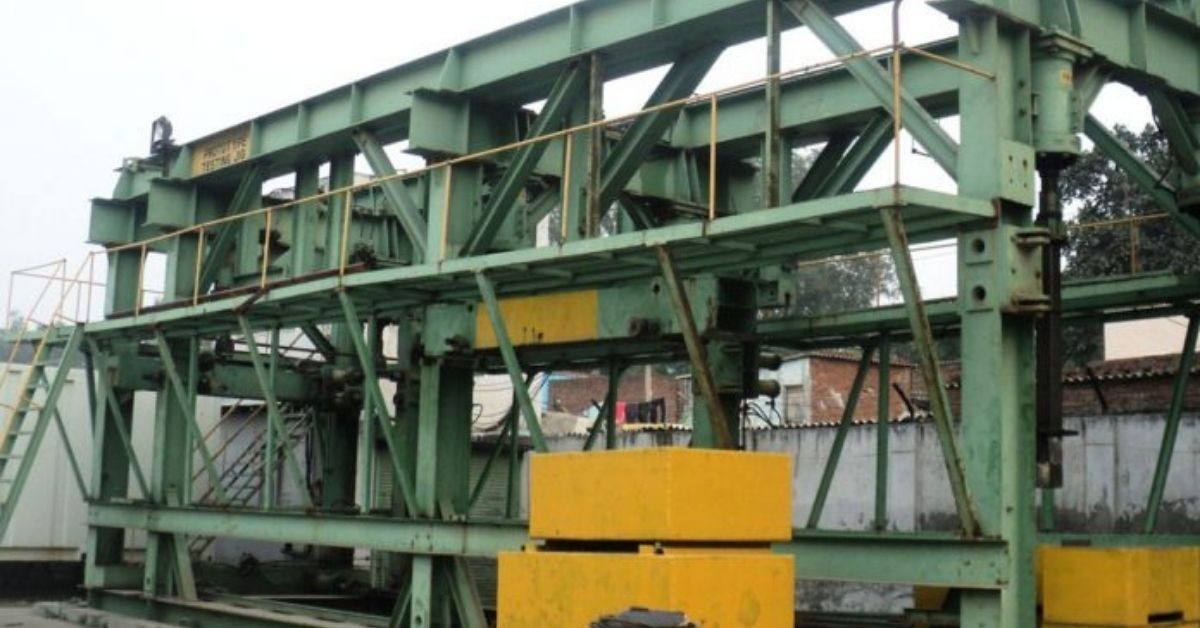India is making the ambitious leap of container consumer to container manufacturer, putting it in competition with the dominant Chinese, with the aim of ending the country’s container shortage crisis.
Multimodal logistics company, the Container Corporation of India (Concor), which spends US$27.52 million annually on container procurement from China, has issued a developmental order for 1,000 containers each to Bharat Heavy Electricals Limited (BHEL) and Braithwaite & Co.
Concor, which owns 85% of the Indian container movement market, plans to source its remaining requirement for 6,000 containers annually from local companies, and will soon issue tenders for the remaining containers in which domestic players will be able to participate.
Container News understands that Kalyani Cast Tech, Balmer Lawrie, Transafe, DCM Hyundai, Ritveyraaj Cargo Shipping Containers and Valisons & Co. are in the running to become container manufacturers for Concor.
Even as the Commerce Ministry in India announced the move during a recent webinar hosted by Concor, the Federation of Indian Export Organizations (FIEO) was in talks with the government, discussing the challenges and the country’s requirements for developing an Indian container manufacturing industry.
FIEO president – Sharad Kumar Saraf – believes this is the right time to move into manufacturing, as India wants to become less dependent on China. “India’s container shortage will persist at least for a few years because imports have gone down and incoming containers are less. This trend will persist because India is pushing for ‘Atmanirbhar Bharat’ (the self-reliant India), an initiative that will decrease the number of containers coming into the country.”
However, cost remains as one of the major challenges, with at least a 25%-30% difference between containers made in India and abroad. Up to now all the containers in India were imported from China and now the Indian manufacturers will have to look for ways to reduce the cost of production.
India is at a distinct disadvantage compared to China when it comes to steel prices. Steel accounts for 50% of the cost for raw materials in manufacturing containers, while other materials, including floorboards, locking bars, door seals and paint are all imported from China.
Even so, an optimistic Saraf believes that steel prices in India are now at a par with international rates and that container prices have increased proportionately. “There are no challenges regarding raw materials and we are quite reasonable with labour too. Cost is a very subjective term and it varies from time to time”, said the FIEO President.
Piyush Goyal – the Union Railway Minister of India stressed the importance of manufacturing indigenous high-quality containers emphasising the country’s excellent steel making capabilities. “If India starts manufacturing at scale, we will become cost-competitive to sell to all parts of the world. Scale presents huge cost-benefit opportunities.” He added., India’s exports are going to rise significantly and if India manufactures a million containers a year, it will become cost-competitive which will ensure that more Indian companies start owning Indian flag vessels.”
While Concor has taken responsibility for building a container manufacturing ecosystem, the manufacturing process, quality, consistency and volume of containers may become a challenge.
Vinay Paulose -Director at VS & B Containers Group, a Chennai-based container leasing company, said, “Manufacturing is capital-intensive and the returns would be over a longer period of time given exports from India are nothing compared to China.”
China’s main advantage is that it starts to make money on containers from the first voyage as most of the world’s goods are being exported from China. Whereas any other country must wait until cargo is imported to make an income.
“Therefore in India’s case, the government needs to incentivise the manufacturer and the buyer until the industry matures. In terms of quality, China has a couple of decades head start in standardised quality which is why the Indian government needs to assure proper support to manufacturers to get high quality containers,” explained Paulose.
Major Indian steel players confirmed the availability of the required high-grade steel allowing them to contribute to India’s ‘Atmanirbhar’ vision during Concor’s stakeholders’ consultation webinar.
Paulose believes it’s the right time to fix India’s container shortage crisis, because “the push is coming from government and not a private entity.”
According to Paulose India will have sympathy buyers from outside the country as many countries look to break China’s monopoly in the global market and there have been cases where buyers have approached India for containers specifically because they are not made in China and they are willing to pay a premium for it.
A relaxation of the 40.8% import duty after 18% goods & services tax (GST) on corten steel or suspension of iron ore exports would help Indian container manufacturers, said Sunil Vaswani – executive director of the Container Shipping Lines Association (India).
“A favourable policy framework, price competitiveness and quality would give a boost to this business,” said Vaswani, adding, “These containers would, therefore, cater to both Indian demand for exports as well as to the global demand for containers. These containers could be sold or leased to the shipping lines, NVOCCs and container leasing companies.”
In addition, with the use of in-house technology, India aims to manufacture GPS-enabled containers for better logistics. Currently, BHEL and Braithwaite & Co. are developing prototypes and test results are expected in April.
The implementation is moving at double speed as Dubai-based Transworld Group has signed an agreement with state-owned Sagarmala Development Company Ltd to invest in a container manufacturing facility in Gujarat with an investment of approximately US$27.5 million. India’s foreign trade stood at US$838.46 billion in 2020. And increasing trade has translated into higher demand for containerisation due to efficiencies.
Source : Container-News







